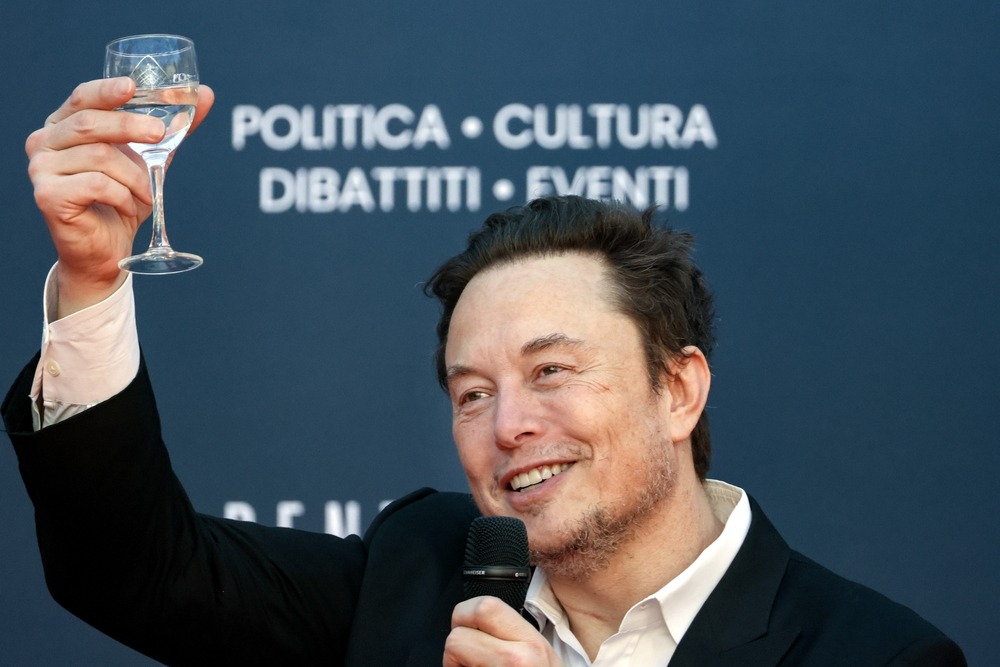Can Musk Still Harm OpenAI Despite Failed Bid?
OpenAI's board of directors has formally declined Elon Musk's nearly $100 billion proposal for the organization behind ChatGPT, the most recognized artificial intelligence tool globally.
However, experts suggest that this unsolicited bid may not be entirely unsuccessful from Musk's perspective.
This is due to the possibility that the offer could hinder CEO Sam Altman's ambitions to transition OpenAI from a non-profit organization to a for-profit entity.
Johnnie Penn, an associate teaching professor at the University of Cambridge, remarked that Musk is essentially attempting to obstruct OpenAI's growth trajectory.

Profit & Non-Profit
Last week, Elon Musk, along with a group of investors that includes prominent Hollywood agent Ari Emanuel, presented an external offer of $97.4 billion (£78.4 billion) for the entirety of OpenAI's assets.
This amount is substantial; however, it falls short of the $157 billion valuation the company received during a funding round just four months prior, and it is significantly lower than the $300 billion valuation that some analysts believe it currently holds.
Adding to the complexity of the situation is OpenAI's unique organizational structure, which consists of a partnership between its non-profit and for-profit divisions.
RELATED: Elon Musk Offers To Drop $97B OpenAI Bid If It Stays A Non-Profit.
It is reported that Mr. Altman aims to modify this structure by eliminating the non-profit board. This change entails costs that Mr. Musk appears to be attempting to exaggerate.
"What Musk is trying to do here is raise the perceived value of the non-profit arm of OpenAI, so that OpenAI has to pay more to get out of the obligations it has to its own non-profit," said Dr Penn.
The worth of its non-profit assets remains ambiguous. According to Lutz Finger, a senior lecturer at Cornell University and the founder and CEO of the AI startup R2Decide, Musk was proposing a price with his offer.
"By Musk putting a price tag on the non-profit part, he makes the split way more expensive for Altman to do," Mr Finger stated. "It's very simple."

Has Musk Missed The AI Train?
Mr. Musk defended his actions by stating his intention to restore OpenAI, an organization he co-founded, to its non-profit origins and its initial goal of advancing artificial intelligence for the betterment of humanity.
Conversely, some critics argue that his motivations may be less altruistic, pointing to his own AI venture, xAI, and its chatbot Grok, which have not garnered significant public interest.
"Musk has missed the AI train, somewhat. He's behind, and he has made several attempts to catch up," Mr Finger said.
Mr. Finger asserts that Mr. Musk is attempting to undermine his most significant rival.
The already strained relationship seemed to deteriorate further last week when Mr. Altman mocked Mr. Musk's proposal on X, to which Mr. Musk responded by labeling his former associate a "swindler."
In a subsequent interview with Bloomberg, Mr. Altman countered by suggesting that Mr. Musk is not "a happy person" and indicated that his choices stem from a "position of insecurity."
This exchange is also unfolding in the courtroom, where U.S. District Judge Yvonne Gonzalez Rogers is deliberating on Mr. Musk's request for an injunction aimed at preventing OpenAI from proceeding with its intended conversion.
He asserts that he will suffer irreversible damage without her assistance.
"It is plausible that what Mr Musk is saying is true. We'll find out. He'll sit on the stand," Gonzalez Rogers said during a hearing in Musk v Altman earlier this month in Oakland, California.

OpenAI's legal representatives assert that Mr. Musk's recent proposal is inconsistent with his previous statements regarding the inability to transfer OpenAI's assets for "private gain."
"[O]ut of court, those constraints evidently do not apply, so long as Musk and his allies are the buyers," their reply brief states, external.
Certain observers contend that it never seemed to be his objective to reach an agreement.
"I think he's just trying to create noise and news and consternation," says Karl Freund, founder and principal analyst at Cambrian-AI.
However, alongside creating difficulties for his former adversary, this approach may also result in enduring harm to Mr. Musk's own reputation.
"He's brilliant. He creates incredible companies that are doing incredible things. But his personal agenda is causing people to question his motives," Mr Freund said.
RELATED: OpenAI Rejects Elon Musk's $97 Billion Takeover Bid.
Elon Musk’s aggressive bid for OpenAI, despite being rejected, appears to be driven more by personal rivalry than genuine concern for the organization’s mission. His attempt to raise the value of OpenAI's non-profit arm to complicate its transition to a for-profit structure reveals a desire to hinder its growth rather than promote AI’s ethical advancement.
Musk’s motivations, especially when viewed alongside his own struggling AI venture, raise questions about his intentions. This approach risks tarnishing his reputation, as it highlights his personal insecurities and attempts to undermine competitors, ultimately doing more harm than good to his image.










